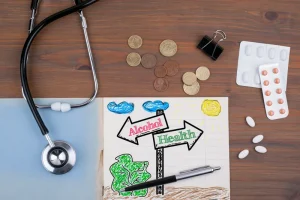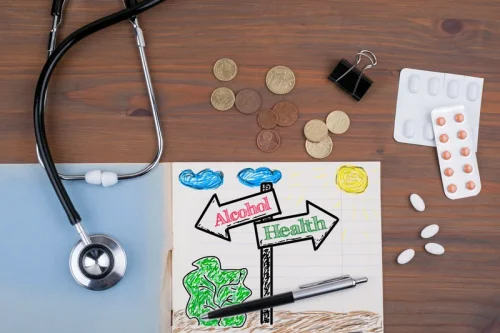
Men are 2.0 times more likely to have alcohol problems if they have PTSD than men who never do not have PTSD. Learn how having PTSD and alcohol use problems at the same time can make your symptoms of ptsd and alcohol abuse both, worse. The Substance Abuse and Mental Health Services Administration has a directory of clinicians and national resources. Their website additionally has information about supporting loved ones, seeking help in a crisis, harm reduction, and educational information about substances and substance use.

Treating PTSD and Alcohol Use Disorder: Concurrent Cognitive Processing Therapy and Psychopharmacology

Alcohol use disorder affects about a third of individuals in the United States at some point in their lives. Post-traumatic stress disorder (PTSD) is one of the most common psychiatric comorbidities of alcohol use disorder, especially among veterans. The symptoms of PTSD interact with those of alcohol use disorder in a self-exacerbating cycle. Therapies like cognitive behavioral therapy (CBT) help reframe negative thoughts, while EMDR (eye movement desensitization and reprocessing) helps you process traumatic memories without being overwhelmed by them.
Center for the Study of Alcohol Use Disorder & Traumatic Stress Research
1 in 3 veterans currently getting treatment for substance abuse suffer from PTSD. From 2003 to 2009, there was a 56 percent increase of veterans getting treatment for alcoholism. ACEs are fairly common, with almost two-thirds of adults reporting at least one adverse childhood experience. They can contribute to many issues, including mental health diagnoses, medical problems, poor social support, unemployment, substance dependence, and early death.
- PTSD is a disorder caused by trauma, although trauma is not the only factor.
- Talking to a trusted friend or family member — as well as getting in touch with a trauma-informed therapist (more on that later!) — will keep the conversation going and provide us with the support we need.
- Supermarkets offer a variety of choices, and platforms like The Wise Bartender provide a wide selection.
- Alcohol.org is a subsidiary of AAC, a nationwide provider of rehab centers.
- Try mindfulness to bring yourself into the present moment, exercise to boost mood-boosting chemicals, or engage in creative activities to release emotional stress.
- The National Center for PTSD estimates as many as 75 percent of trauma survivors experience an alcohol use disorder.
Treatment for Alcohol usage disorders and PTSD
PTSD is a mental health condition occurring in people after they have experienced a major traumatic event. PTSD impacts 3.6 percent of adult Americans, approximately 5.2 million people. This number is predicted to increase to 7.8 million people in the near future. PTSD can last for as little as a few months or continue for the rest of a sufferer’s life and can be acute, ongoing, or delayed.

Narrative exposure
- Each VA medical center has an SUD-PTSD Specialist who is trained to treat both conditions.
- People with this condition may consume large amounts of alcohol or continue to drink even when it causes negative consequences in their life.
- Treatment for co-occurring PTSD and alcohol use disorders may include both individual therapy and group therapy.
- PTSD (Post-Traumatic Stress Disorder) is a mental health condition that happens after someone goes through a traumatic event like war, assault, accident, or natural disaster.
- The interventions target relationship skills and skills related to reducing AUD severity.
In some studies, participants received trauma-focused therapy concurrently with SUD psychotherapy (e.g., 13) while in other studies, trauma-focused PTSD treatment and SUD psychotherapy were integrated into a single intervention. For example, Concurrent Treatment of PTSD and Substance Use Disorders Using Prolonged Exposure (COPE) integrates Prolonged Exposure therapy for PTSD with relapse prevention for SUD. Studies of COPE with Veteran and non-Veteran samples have shown COPE to outperform treatment as usual and relapse prevention for https://ecosoberhouse.com/ PTSD symptom reduction (14,15). A participant level meta-analysis called Project Harmony combined and analyzed individual patient data from 36 randomized controlled trials of psychological and pharmacological treatment for PTSD and SUD.
Concurrent treatment of PTSD and substance use disorders using prolonged exposure (COPE)
Others may have periodic bouts of binge-drinking where alcohol consumption spirals out of control. There are those who engage in day drinking, hidden behind closed doors, and those who experience blackouts or damaging incidents during nights out. Despite the differences, the common thread is that alcohol use has a negative impact on their lives. It’s a spectrum of drinking behaviours that encompass everything from occasional binge drinking to daily consumption that negatively impacts one’s life. Research shows that people with PTSD are around four times more likely to be affected by alcohol use disorders than the general population. Studies show that the relationship between PTSD and alcohol use problems can start with either issue.
Dual Diagnosis: Treating PTSD and Alcohol Abuse
- It is among the first studies to examine the effects of trauma cues and stress (non-trauma) cues on alcohol craving, mood, physiological and neuroendocrine responses, and demonstrates the powerful effects of trauma cues on alcohol craving and consumption.
- Evidence-based behavioral interventions for AUD include relapse prevention, contingency management, motivational enhancement, couples therapy, 12-step facilitation, community reinforcement, and mindfulness.
- It’s all about understanding how trauma and alcohol use function in the brain.
- Further research is needed to better understand the findings and to identify factors that are related to the development of AUD in AA women.
Many people will suffer from PTSD symptoms for several months or years. Most individuals will begin to experience symptoms within three months after the traumatic event. However, some people don’t begin to have symptoms of PTSD for several months or years. These two conditions can cause the symptoms of the other to worsen and can make treatment particularly difficult.
Find Free Recovery Group Meetings Near You
Seeking treatment for both at the same time is encouraged, since they tend to feed off each other. Unfortunately, both alcohol usage disorders and alcohol withdrawal can intensify the symptoms of PTSD, so support during the detox process will be essential to increase the effectiveness of any treatment. As a result, some experience flashbacks and intrusive memories from war and use alcohol as coping mechanisms. Sixty-eight percent of Vietnam veterans who sought help for PTSD suffered from alcoholism.

Our daily research-backed readings teach you the neuroscience of alcohol, and our in-app Toolkit provides the resources and activities you need to navigate each challenge. Trauma keeps you stuck in a heightened stress state, making it difficult to break free from coping mechanisms like alcohol use. The brain’s survival system craves the temporary relief alcohol offers, even though it harms you in the long run. Trauma can leave you feeling overwhelmed, anxious, or emotionally numb, and alcohol is often used to self-medicate those feelings. While alcohol may provide temporary relief by boosting dopamine and relaxing your body, it worsens trauma in the long run by disrupting brain function, increasing anxiety, and interfering with sleep. The result is a cycle in which trauma drives alcohol use, and alcohol use, in turn, intensifies the effects of trauma.